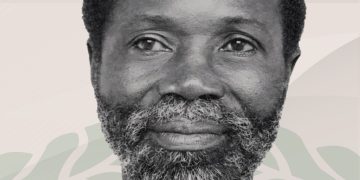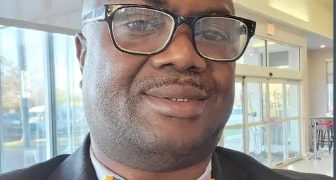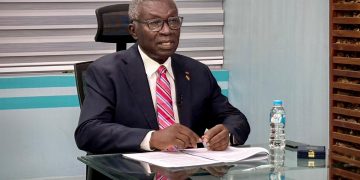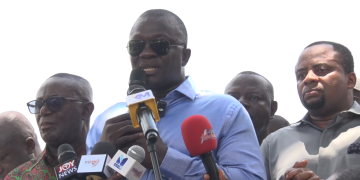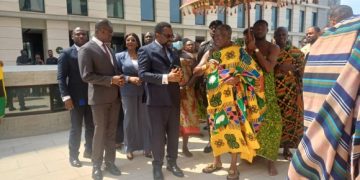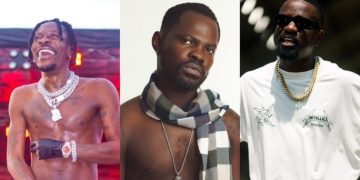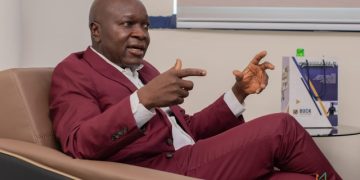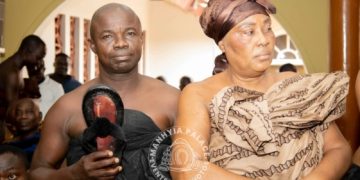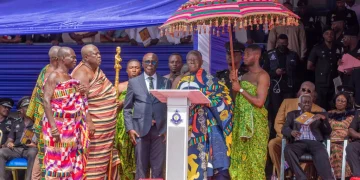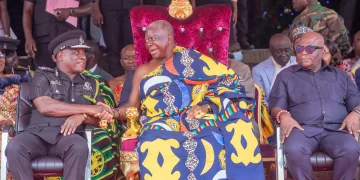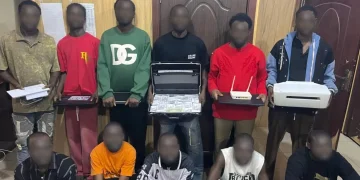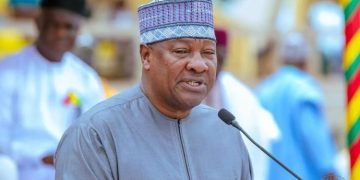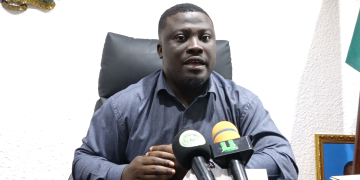Controversial media personality Kevin Ekow Taylor has filed a high-profile application at the Supreme Court of Ghana, seeking to have an arrest warrant issued against him by the High Court (Commercial Division) in January 2020 quashed.
Taylor, who is currently based in the United States, argues that the warrant was issued in violation of his fundamental rights and the principles of natural justice.
Background to the Case
The arrest warrant stems from proceedings in the case titled Republic v. Eugene Baffoe-Bonnie & Four Others (Case No. CR 904/17).
The High Court, presided over by Justice Eric Kyei Baffour, issued the warrant for Taylor’s arrest on January 16, 2020, in connection with allegations of contempt arising from a video circulated on social media.
The video was described by the court as “scandalous” and “prima facie contemptuous,” allegedly scandalizing the judge, the court, and the administration of justice.
Taylor’s application, filed through his counsel Peter Okudzeto Esq., invokes the Supreme Court’s supervisory jurisdiction under Article 132 of the 1992 Constitution and Rule 61(1) of the Supreme Court Rules, 1996 (C.I. 16).
The application seeks an order of certiorari to bring up and quash the High Court’s arrest warrant, as well as a declaration that the High Court lacked jurisdiction to issue the warrant without first giving Taylor an opportunity to respond to the allegations.
Key Grounds of the Application
I. Breach of Natural Justice:
Taylor contends that the High Court violated the audi alteram partem rule (the right to be heard) by issuing the warrant without affording him a hearing on the allegations.
II. Procedural Irregularity:
The application asserts that the warrant was not issued in accordance with any lawful procedure, as there was no prior order requiring Taylor to appear before the court or to show cause.
III. Error of Law: Taylor’s legal team argues that the court erred by ordering his arrest before giving him a chance to be heard, especially in the absence of any evidence that he had refused to appear voluntarily.
In a sworn affidavit, Taylor details his lack of prior knowledge about the warrant, stating that he only became aware of its existence through friends, relatives, and social media discussions.
Despite repeated requests, he claims he was never provided with a copy of the order until his current solicitor obtained it after an extensive search in May 2025.
Taylor also points out that the warrant refers to a “Kelvin Taylor,” a name similar but not identical to his own, yet all media discussions and information from acquaintances indicate that he is the intended subject.
He further notes that neither he nor his lawyer has been able to obtain a copy of the allegedly contemptuous video from the court registry.
Taylor’s affidavit emphasizes that the warrant for his arrest, issued before any hearing or invitation to appear, constitutes a serious threat to his fundamental human rights.
He argues that the High Court’s actions undermine its obligation to protect the right to liberty and that no law permits depriving a person of their liberty without first hearing them.
He maintains that, in contempt proceedings, courts typically summon individuals to appear and show cause before considering arrest, especially when there is no indication of an intention to evade the court.
Reliefs Sought
Taylor is asking the Supreme Court to ‘Quash the arrest warrant issued by the High Court on January 16, 2020.’
Also, ‘Declare that the High Court acted without jurisdiction and in breach of natural justice’ and again ‘Grant any further orders the Supreme Court deems fit.’
Source :www.kumasimail.com /Kwadwo Owusu












